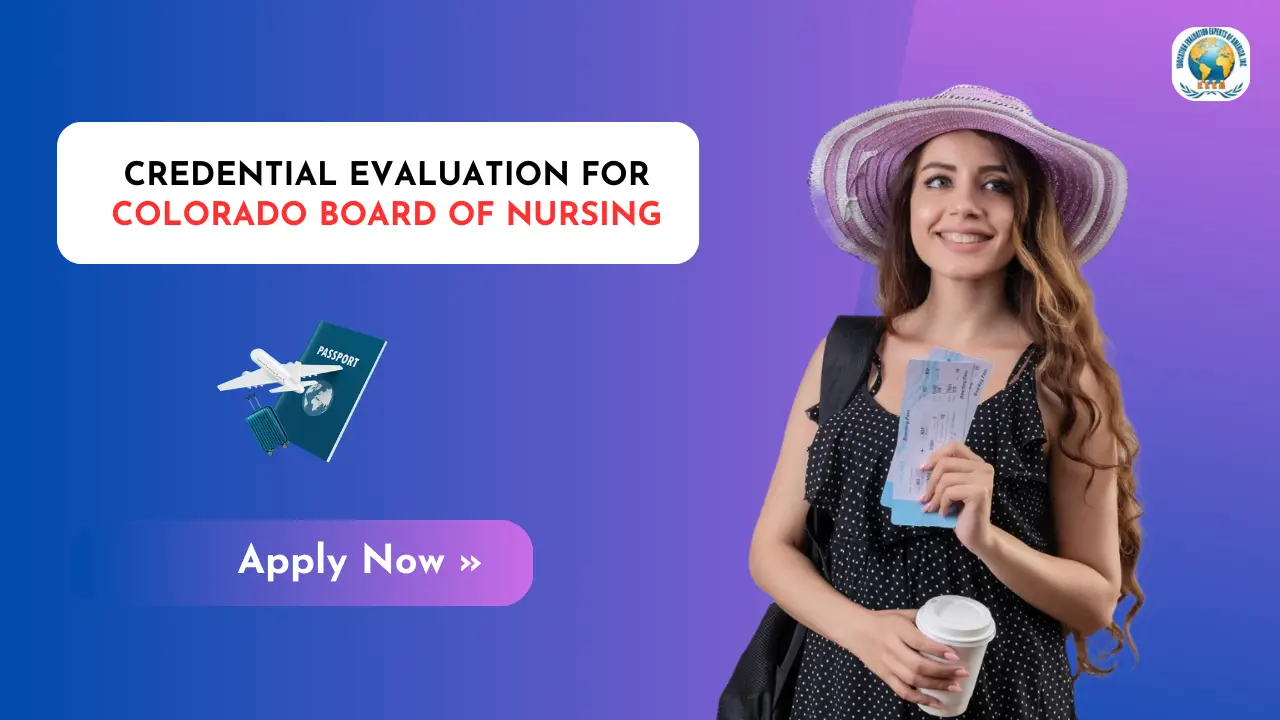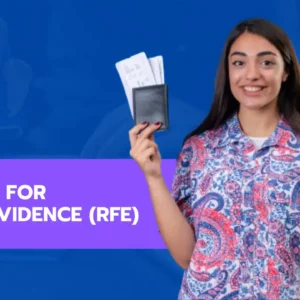Are you considering a nursing career in Colorado? The Colorado Board of Nursing plays a crucial role in evaluating and verifying the credentials of nursing professionals. For those with international education or experience, understanding the credential evaluation process is essential to obtain licensure and practice in the state.
We’ll dive into the key aspects of credential evaluation for the Colorado Board of Nursing. Our guide covers the types of nursing licenses available, required documents for evaluation, the step-by-step process, and English language proficiency requirements. Whether you’re a new graduate or an experienced nurse looking to work in Colorado, this information will help you navigate the path to licensure with confidence.
Understanding Credential Evaluation for Colorado Nursing
Credential evaluation is a crucial step for nurses educated outside the United States who wish to practice in Colorado. We’ll explore what this process entails and why it’s necessary for international nurses seeking licensure in the state.
What is credential evaluation?
Credential evaluation is a detailed analysis of nursing qualifications earned outside the U.S. This process involves validating and authenticating all licenses, registrations, and diplomas obtained by an applicant. The Credentials Evaluation Service (CES) Professional Report, provided by trusted organizations like EEE OF AMERICA, offers a comprehensive assessment of foreign nursing credentials.
Key aspects of credential evaluation include:
- Verification of licenses and registrations
- Authentication of university diplomas
- Review of complete academic records or transcripts
- Comparison of nursing education against U.S. standards
The CES Professional Report serves as a valuable tool for prospective employers and regulatory agencies to assess the competencies of foreign-educated nurses. It demonstrates the merits of a nurse’s credentials in their pursuit of professional opportunities in the U.S.
Why is it required?
Credential evaluation is required to ensure that nurses educated outside the U.S. meet the standards set by the Colorado Board of Nursing.
Here’s why it’s essential:
- Licensure facilitation: The evaluation helps nurses obtain licensure to practice in Colorado.
- Employment opportunities: It aids in securing employment in the U.S. healthcare industry.
- Specialty certification: The evaluation can be used for obtaining specialty certifications.
- Immigration purposes: Immigration attorneys may use the evaluation report in visa applications.
- Standardization: It ensures that all nurses, regardless of their educational background, meet the same professional standards.
- Quality assurance: The process helps maintain high standards of patient care by verifying the qualifications of foreign-educated nurses.
The Colorado State Board of Nursing licenses registered nurses and practical nurses. It’s important to note that Colorado is a Nurse Licensure Compact (Compact) state. This means that nurses licensed by another Compact state don’t need to apply for licensure unless they plan to make Colorado their primary state of residency.
For the credential evaluation process, we need to submit specific documents:
- Diplomas and certificates
- Complete academic records or transcripts (in English)
- Current and previous licenses or registrations
These documents must be sent directly to the evaluation service from the issuing authorities to ensure authenticity.
An essential component of the credential evaluation for many nurses is the English Language Proficiency (ELP) requirement. If your nursing program wasn’t taught entirely in English, you’ll need to take an approved English language proficiency exam. The scores from this exam must be submitted before the CES Professional Report can be issued to the Colorado Board of Nursing.
However, if your program was taught solely in English, you’re exempt from this requirement. It’s crucial to check the specific requirements for Colorado, as some states mandate an English Language Proficiency Report to be attached to the CES Professional Report.
By understanding the credential evaluation process, we can better prepare for the journey toward nursing licensure in Colorado. This comprehensive assessment ensures that our qualifications are recognized and valued, paving the way for a successful nursing career in the state.
Types of Nursing Licenses in Colorado
In Colorado, we have different types of nursing licenses overseen by the State Board of Nursing. This board is responsible for enforcing statutes, rules, and policies implemented by the Nurse Practice Act, Nurse Aide Practice Act, and the Licensed Psychiatric Technician Practice Act. The board staff oversees education, licensing, and enforcement for more than 110,000 licensees, including nurses, nurse aides, and licensed psychiatric technicians.
Let’s explore the two main types of nursing licenses in Colorado:
Registered Nurse (RN)
Registered Nurses form a significant portion of the nursing workforce in Colorado. Here are some key points about RN licenses:
- License Expiration: All Registered Nurse licenses in Colorado expire on September 30th of either odd- or even-numbered years. The expiration year depends on the initial issuance date of the license.
- Scope of Practice: RNs have a broader scope of practice compared to LPNs. They can perform more complex nursing tasks and have greater autonomy in patient care.
- Education Requirements: To become an RN, we typically need to complete an accredited nursing program, which can be an associate’s degree in nursing (ADN) or a bachelor’s degree in nursing (BSN).
- Board Representation: The State Board of Nursing includes RN members. For instance, Lori Rae Hamilton, MSN, RN, represents Vocational/Practical Nursing Education on Panel A of the board, with her term expiring on July 1, 2026.
Licensed Practical Nurse (LPN)
Licensed Practical Nurses also play a crucial role in Colorado’s healthcare system. Here’s what we need to know about LPN licenses:
- License Expiration: All Practical Nurse licenses in Colorado expire on August 31st of even-numbered years. This uniform expiration date makes it easier for LPNs to remember when to renew their licenses.
- Scope of Practice: LPNs work under the supervision of RNs or physicians. Their scope of practice is more limited compared to RNs, but they still provide essential patient care.
- Education Requirements: To become an LPN, we typically need to complete a state-approved practical nursing program, which usually takes about one year.
- Board Representation: The State Board of Nursing ensures representation for LPNs. For example:
- Lenny Rothermund, LPN, serves as an LPN Member on Panel A, with a term expiring on July 1, 2027.
- Nichele Bratton, LPN, serves as an LPN Member on Panel B, with a term expiring on July 1, 2025.
It’s important to note that the Colorado Board of Nursing also oversees other healthcare professionals, including Certified Nurse Aides, Psychiatric Technicians, and Certified Midwives. Each of these professions has its own specific applications and forms available through the board.
For both RNs and LPNs, as well as other nursing professionals, the credential evaluation process is crucial, especially for those educated outside the United States. This evaluation ensures that all nursing professionals practicing in Colorado meet the high standards set by the State Board of Nursing, regardless of where they received their education.
By understanding the different types of nursing licenses and their requirements, we can better navigate the licensing process in Colorado. Whether we’re pursuing a career as an RN or LPN, it’s essential to stay informed about the specific requirements and renewal dates for our chosen path.
Required Documents for Credential Evaluation
When we’re preparing for credential evaluation with the Colorado Board of Nursing, it’s crucial to have all the necessary documents in order. Let’s break down the key components we need to submit for a comprehensive evaluation.
Educational Records
Our educational records form the foundation of the credential evaluation process. Here’s what we need to provide:
- Secondary School Diploma: We must submit our highest level of secondary education certificate. This can be a high school diploma or an external exam certificate. It’s important to note that these documents need to be in English. If they’re not, we can translate them ourselves or have someone do it for us. If that’s not possible, CGFNS can translate them for an additional fee.
- Nursing Program Documents: We need to submit our nursing diploma and a complete academic record or transcript from each educational institution we attended for our nursing education. These documents must be sent directly from our educational institutions to CGFNS. They should be in English, translated by the institution if possible. If the institution can’t provide an English translation, CGFNS can do it for an extra charge.
- Course Descriptions: We also need to provide course descriptions in English for all the courses in our professional nursing education. This helps the evaluators understand the content and depth of our training.
It’s crucial to remember that all original documents must be sent from our school along with Form 101, which is generated automatically when we complete our nursing application online.
Licensure Verification
Verifying our nursing licenses is a key part of the evaluation process. Here’s what we need to know:
- Current and Previous Licenses: We need to provide verification of all relevant licenses and registrations we’ve held, both current and previous, in any non-U.S. jurisdiction.
- Direct Submission: These verifications must be sent directly to CGFNS from the issuing authority. This ensures the authenticity of our credentials.
- Recent Validation: It’s important to note that CGFNS and state boards of nursing require license validations to be current. The signature of the validation authority must be dated within the last three years.
- Form 102: If we’ve obtained a foreign nursing license, the verification must be sent from the license-issuing authority along with Form 102. This form is also generated automatically when we complete our online nursing application.
English Proficiency Proof
Demonstrating English proficiency is a crucial part of the evaluation process for many of us. Here’s what we need to know:
- English Language Proficiency (ELP) Exam: If our nursing program wasn’t taught entirely in English, we need to take an approved English language proficiency exam. The scores from this exam must be submitted before the CES Professional Report can be issued to the Colorado Board of Nursing.
- Direct Submission: All test scores must be sent directly to CGFNS from an approved ELP testing agency.
- Exemptions: If our program was taught solely in English, we’re exempt from this requirement. However, if the language of instruction and textbooks included both English and another language, we still need to take an ELP exam.
- State-Specific Requirements: Some states require an English Language Proficiency Report to be attached to the CES Professional Report. We should check the specific requirements for Colorado to ensure we meet all necessary criteria.
By gathering and submitting these required documents, we’re taking a significant step towards having our credentials evaluated for nursing practice in Colorado. It’s a detailed process, but understanding these requirements helps us navigate it more effectively. Remember, accuracy and authenticity in our documentation are key to a smooth evaluation process.
The Credential Evaluation Process
We know that navigating the credential evaluation process can seem daunting, but we’re here to guide you through it step by step. Let’s break down the key stages of this process to make it more manageable.
Choosing an evaluation service
When it comes to credential evaluation for the Colorado Board of Nursing, we have two main options:
- Commission on Graduates of Foreign Nursing Schools (CGFNS): This organization provides a Credential Evaluation Service Professional Report, which is widely accepted and highly trusted in the healthcare industry.
- National Association of Credential Evaluation Services (NACES): We can also opt for an evaluation by a member of NACES.
Both services offer comprehensive assessments of our nursing credentials earned outside the United States. They validate and authenticate all our licenses, registrations, and diplomas, comparing our nursing education against U.S. nursing standards.
Submitting documents
Once we’ve chosen our evaluation service, it’s time to submit our documents. Here’s what we need to do:
- Create an account: We’ll start by setting up an account with the chosen evaluation service.
- Upload documents: We need to submit various documents, including:
- Secondary school diploma
- Nursing program documents (diploma and transcripts)
- Course descriptions
- Current and previous nursing licenses
- Ensure proper submission: It’s crucial that our educational institutions and licensing authorities send these documents directly to the evaluation service. This ensures the authenticity of our credentials.
- Provide translations: All documents must be in English. If they’re not, we can either translate them ourselves or have the evaluation service do it for an additional fee.
- English proficiency proof: If our nursing program wasn’t taught entirely in English, we need to submit scores from an approved English language proficiency exam.
Evaluation timeframe
The evaluation process takes time, but there are ways to expedite it:
- Standard processing: With standard processing, we can expect to receive our evaluation in about 5 days.
- Expedited service: Some evaluation services offer faster processing for an additional fee.
- Colorado Board of Nursing Institution Portal: By using this portal, we not only receive a discount for digital deliveries but also get our evaluation in 5 days with standard processing.
- Board review: Once we submit our application to the Colorado Board of Nursing, it must be reviewed during their monthly meetings. This initial review takes a minimum of three weeks.
- Additional documents: During the review, the Board may request additional documents via email.
- Final correspondence: Once approved, we’ll receive final email correspondence within 14 days of the Board meeting.
Throughout this process, we can track our progress by logging into our account and viewing the status of our order at any time. This keeps us informed and allows us to respond promptly to any requests for additional information.
Remember, while the credential evaluation process may take some time, it’s a crucial step in ensuring that our qualifications meet the high standards set by the Colorado Board of Nursing. By understanding each stage of the process, we can navigate it more effectively and move closer to our goal of practicing nursing in Colorado.
English Language Proficiency Requirements
When we’re applying for nursing licensure in Colorado, demonstrating our English language proficiency is a crucial step, especially for those of us who completed our nursing education in a non-English speaking country. The Colorado Board of Nursing has specific requirements to ensure that all nurses can communicate effectively in English, which is essential for patient safety and quality care.
Accepted tests
We have several options when it comes to proving our English language skills. The Colorado Board of Nursing accepts various standardized tests, each designed to assess different aspects of English proficiency. Here’s a list of the accepted tests:
- Test of English as a Foreign Language (TOEFL)
- International English Language Testing System (IELTS)
- Test of English for International Communication (TOEIC)
- Michigan English Test (MET)
- Cambridge English Qualifications
- Pearson Test of English (PTE) Academic
- Occupational English Test (OET)
It’s worth noting that the PTE Academic has gained popularity among nursing applicants. This computer-based test offers several advantages:
- It’s available in 140 countries at over 400 test centers.
- Results are typically available within 2 days.
- The test can be taken in a single 2-hour session, which many find less stressful.
- In 2022, 98% of test-takers received their scores in less than a day.
Minimum score requirements
Each test has its own scoring system, and the Colorado Board of Nursing has set specific minimum score requirements for each.
Here’s a breakdown of the minimum scores needed:
| Test | Overall Score | Section Scores |
|---|---|---|
| TOEFL (RN) | 81 | Reading, Listening, Writing: 57; Speaking: 24 |
| TOEFL (LPN) | 77 | Reading, Listening, Writing: 53; Speaking: 24 |
| IELTS (RN) | 6.5 | Each module: 7.0 |
| IELTS (LPN) | 6.0 | Each module: 7.0 |
| TOEIC (RN) | Listening and Reading: 725 | Speaking: 160; Writing: 150 |
| TOEIC (LPN) | Listening and Reading: 700 | Speaking: 160; Writing: 150 |
| MET | 55 | N/A |
| Cambridge (RN) | 185 | Speaking: 185 |
| Cambridge (LPN) | 169 | Speaking: 185 |
| PTE Academic | 55 | No sub-scores lower than 50 |
| OET | N/A | Each section: 300 |
It’s important to note that these requirements may vary slightly depending on whether we’re applying for an RN or LPN license. We should always double-check the specific requirements for our desired license type.
For those of us using the Credential Evaluation Service (CES) through CGFNS, the minimum PTE Academic scores are slightly different:
- Overall: 55
- Reading, Listening, Writing: 50
- Speaking: 63
We need to keep in mind that if our nursing program was taught entirely in English, we might be exempt from taking an English proficiency exam. However, if our program used both English and another language for instruction and textbooks, we’ll still need to take one of these tests.
When we’re ready to submit our test scores, we must ensure they’re sent directly from the testing agency to CGFNS or the Colorado Board of Nursing. This direct submission helps maintain the integrity of the results.
By understanding these English language proficiency requirements and preparing accordingly, we’re taking a significant step towards our goal of nursing licensure in Colorado. It’s a crucial part of the process that demonstrates our ability to communicate effectively in the healthcare setting, ultimately contributing to better patient care and safety.
Conclusion
Navigating the credential evaluation process for nursing licensure in Colorado has a significant impact on the journey of international nurses. From understanding the types of licenses available to gathering the necessary documents and meeting English proficiency requirements, each step plays a crucial role in achieving our goal. The Colorado Board of Nursing’s thorough evaluation ensures that all nurses, regardless of their educational background, meet the high standards required to provide quality care.
As we wrap up, it’s clear that while the process may seem daunting, it’s designed to maintain the integrity of the nursing profession in Colorado. By breaking down each stage and understanding what’s needed, we can approach the evaluation with confidence. Remember, this process isn’t just about jumping through hoops – it’s about making sure we’re ready to give our patients the best care possible. So, let’s take this knowledge and use it to start our nursing careers in Colorado on the right foot.
FAQs
1. What is the processing time for obtaining a registered nurse license in Colorado?
A permanent RN license in Colorado typically takes about 8 weeks to process once all the necessary documents have been received.
2. How long does a CES nursing evaluation report remain valid?
The validity of a CES nursing evaluation report can differ based on the evaluating organization and the requirements of the specific institution or employer to which it is submitted. Generally, these reports are valid for 3 to 5 years.
3. How many individuals make up the Colorado Board of Nursing?
The Colorado Board of Nursing is comprised of twelve members who are residents of the state. These members are appointed by the governor and include two licensed practical nurses and seven licensed professional nurses.
4. How should I list my nursing credentials when writing them?
Nurses in clinical practice should list their credentials starting with their licensure, followed by degrees, and then certifications. For instance, a typical listing would be: RN, BSN, CCRN. Academic educators in nursing should list their academic degrees first, followed by licensure and certifications. In both cases, certifications should be listed last.




